Notable Brothers of Alpha Phi Alpha
These are brothers of Alpha Phi Alpha who have made an impact in various aspects of eduction, politics, culture, entertainment
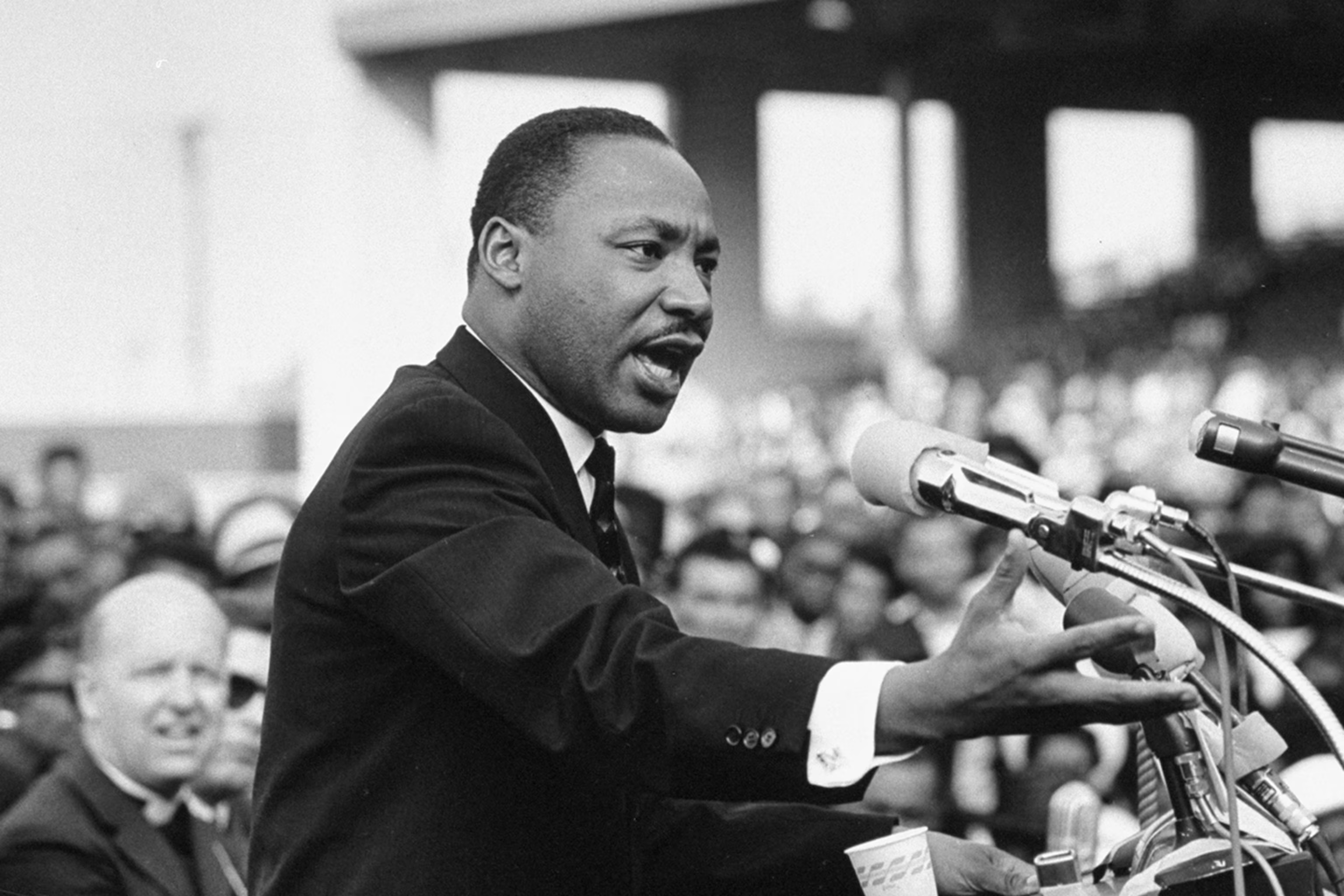
Dr. Martin Luther King Jr. was a pivotal leader in the American civil rights movement, renowned for his advocacy of nonviolent resistance to combat racial segregation and injustice. Born on January 15, 1929, in Atlanta, Georgia, King was deeply influenced by his family's religious background and the teachings of Mahatma Gandhi. He earned a Bachelor of Arts in Sociology from Morehouse College, followed by a Bachelor of Divinity from Crozer Theological Seminary and a Ph.D. in Systematic Theology from Boston University. King's powerful oratory and commitment to civil rights came to the forefront during the Montgomery Bus Boycott in 1955, where he emerged as a prominent leader. He co-founded the Southern Christian Leadership Conference (SCLC) and led numerous peaceful protests, including the historic March on Washington in 1963, where he delivered his iconic "I Have a Dream" speech. His membership in Alpha Phi Alpha reflected his commitment to leadership, brotherhood, and social justice, values that he embodied throughout his life. King received numerous accolades for his contributions to civil rights, including the Nobel Peace Prize in 1964, becoming one of the youngest recipients in history. His unwavering dedication to achieving racial equality and social justice has left an indelible mark on American society and continues to inspire generations around the world. Dr. Martin Luther King Jr.'s legacy of love, compassion, and activism remains a guiding force in the ongoing struggle for civil rights and equality.
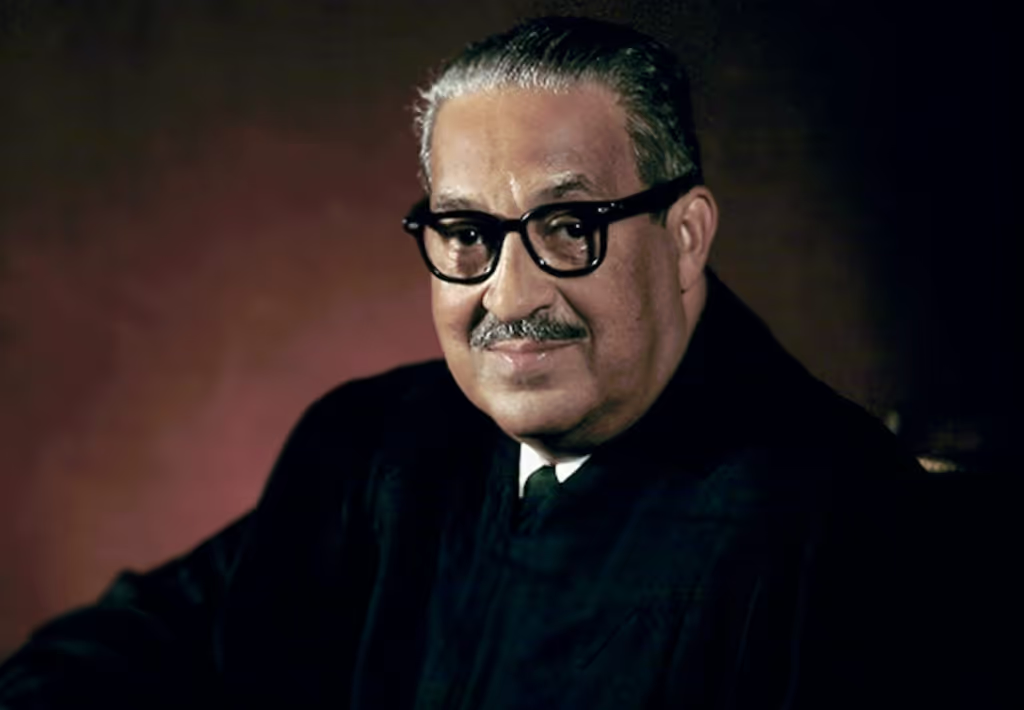
Judge Thurgood Marshall was a trailblazing civil rights lawyer and the first African American Supreme Court Justice in United States history. Born on July 2, 1908, in Baltimore, Maryland, Marshall faced the challenges of racial segregation from a young age. He attended Lincoln University for his undergraduate studies and later enrolled at Howard University School of Law, where he graduated first in his class. Marshall made his mark as a lawyer with the NAACP, where he successfully argued several landmark cases, including the historic Brown v. Board of Education case in 1954, which led to the desegregation of public schools in the United States. His work as a civil rights advocate laid the groundwork for significant advancements in racial equality and justice. In addition to his remarkable legal career, Thurgood Marshall was a proud member of Alpha Phi Alpha Fraternity, Inc., the first intercollegiate Greek-letter fraternity established for African American men. His membership in Alpha Phi Alpha represented his commitment to leadership, education, and community service, values central to the fraternity's mission. Appointed to the Supreme Court by President Lyndon B. Johnson in 1967, Marshall served until 1991, advocating for civil rights, affirmative action, and individual liberties during his tenure. He was known for his strong stance on issues related to social justice and equality. Thurgood Marshall's legacy as a legal pioneer and champion for civil rights continues to inspire generations, reflecting the enduring impact of his contributions to American society.

Wes Moore, the 63rd Governor of Maryland, is a leader, author, and entrepreneur who has dedicated his life to public service. Born in Takoma Park, Maryland, in 1978, Moore faced early challenges, including losing his father at a young age. Raised by a single mother, he worked hard and pursued education, attending Valley Forge Military Academy and later earning degrees from Johns Hopkins University and Oxford University as a Rhodes Scholar. Moore is also a proud member of Alpha Phi Alpha Fraternity, Inc., the first African American Greek-letter fraternity. The fraternity focuses on leadership, brotherhood, and community service, values that align with Moore's own commitment to helping others. His membership in Alpha Phi Alpha reflects his dedication to uplifting communities and fighting for equality. Throughout his career, Moore has worked to improve the lives of others. He wrote The Other Wes Moore, a best-selling book about two men with the same name but very different fates, highlighting the impact of life choices and circumstances. Before becoming governor, he led the Robin Hood Foundation, a major organization focused on fighting poverty. As governor, he works on creating more economic opportunities, improving education, and addressing inequality, with a vision of making Maryland a more just and prosperous state.
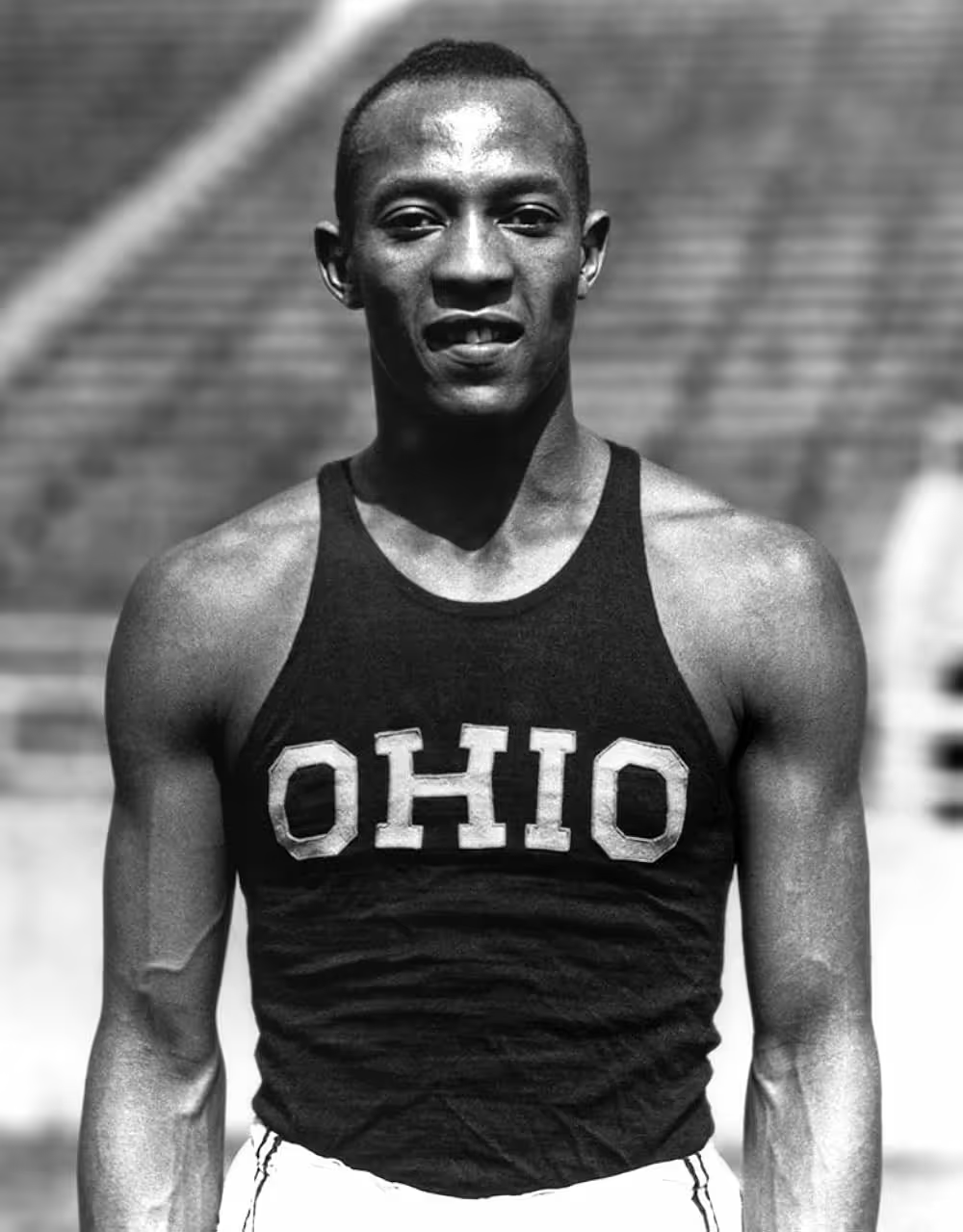
Jesse Owens, born on September 12, 1913, in Oakville, Alabama, is one of the most iconic athletes in history. Growing up in a time of racial segregation and economic hardship, Owens discovered his extraordinary talent for track and field at an early age. He moved with his family to Cleveland, Ohio, where he became a star athlete in high school, eventually earning a scholarship to Ohio State University. Owens is best known for his historic performance at the 1936 Berlin Olympics, where he won four gold medals in track and field, defying Adolf Hitler's vision of Aryan supremacy. His remarkable victories in the 100 meters, 200 meters, long jump, and 4x100 meter relay not only secured his place in sports history but also served as a powerful statement against racism and oppression. His membership in the fraternity reflected his commitment to leadership and service, values central to both his life and Alpha Phi Alpha's mission. After retiring from competitive sports, Owens remained active in promoting social causes, working as an advocate for youth development and civil rights. His achievements, both on and off the track, continue to inspire generations, symbolizing the triumph of perseverance and equality over adversity.

Born in New York City in 1948, Archibald grew up in the South Bronx, where he developed his basketball talents on the city's playgrounds. Despite facing challenges in his early years, including academic struggles, he persevered and went on to attend the University of Texas at El Paso (UTEP), where he refined his game. Archibald’s NBA career took off when he was drafted by the Cincinnati Royals (later the Kansas City-Omaha Kings) in 1970. He made history in the 1972-73 season by becoming the first and only player to lead the league in both points and assists in the same season, solidifying his place as one of the game’s all-time greats. He played for several teams during his career, including the Boston Celtics, with whom he won an NBA championship in 1981. His involvement with Alpha Phi Alpha aligns with his dedication to giving back, as he has used his platform to uplift others through mentorship and community work. After his retirement from the NBA, Archibald remained active in supporting youth, particularly in underserved communities, focusing on education and personal development. His contributions, both on and off the court, highlight his commitment to excellence, service, and making a positive impact on future generations.

Dick Gregory was a pioneering comedian, civil rights activist, and social critic, born on October 12, 1932, in St. Louis, Missouri. He broke racial barriers in the entertainment industry during the 1960s, becoming one of the first Black comedians to perform regularly for white audiences in major nightclubs. Known for his sharp wit and biting commentary on racism, segregation, and social injustice, Gregory used humor as a tool for political activism. His career as a comedian gained widespread attention when he performed at the Playboy Club in Chicago, leading to national fame. However, Gregory’s deep commitment to civil rights led him to shift focus from entertainment to activism. He was heavily involved in the Civil Rights Movement, working alongside figures like Dr. Martin Luther King Jr. and participating in marches, protests, and hunger strikes for causes including racial equality, anti-war efforts, and human rights. Gregory was also a proud member of Alpha Phi Alpha Fraternity, Inc., the first African American intercollegiate Greek-letter fraternity. His involvement in Alpha Phi Alpha was a reflection of his dedication to leadership, scholarship, and service, all values the fraternity holds dear. Gregory continued his activism throughout his life, championing causes related to health and wellness, political reform, and poverty. His legacy includes not only his groundbreaking work in comedy but also his unyielding fight for justice, using his platform to speak out against inequality and inspire change across the world. Gregory’s influence extended far beyond entertainment, as he remained a powerful voice for social reform until his passing in 2017.

Benny Boom, born Benny Douglas on July 22, 1971, in Philadelphia, is a prominent music video director and filmmaker, known for his dynamic visuals and work with some of the biggest names in the music industry. He gained recognition in the early 2000s for directing music videos for top artists such as Nicki Minaj, Lil Wayne, and 50 Cent, establishing himself as one of the leading directors in hip-hop and R&B. Benny Boom's unique style, blending cinematic storytelling with high-energy visuals, earned him multiple awards and a lasting impact on the genre. In addition to his work in music, he transitioned into film directing, with his most notable project being the 2017 biographical film All Eyez on Me, which told the story of the late rapper Tupac Shakur. The film garnered significant attention, cementing Benny Boom's versatility as a director. Benny Boom is also a proud member of Alpha Phi Alpha Fraternity, Inc., the first African American intercollegiate Greek-letter fraternity. His affiliation with Alpha Phi Alpha reflects his commitment to leadership, brotherhood, and service. Boom’s achievements in the entertainment industry mirror the fraternity's values of excellence and uplifting the community. Beyond his professional accomplishments, Benny Boom has worked to mentor young filmmakers and directors, giving back to the next generation of creatives. His contributions have not only shaped the visual landscape of modern music but have also inspired aspiring artists and directors to pursue their visions with passion and purpose.

Yahya Abdul-Mateen II is an acclaimed actor known for his versatility across film and television. Born on July 15, 1986, in New Orleans, Louisiana, and raised in Oakland, California, Yahya initially pursued a career in architecture, earning a degree from the University of California, Berkeley. However, he discovered his passion for acting and shifted his focus, earning an MFA from the Yale School of Drama. Yahya’s breakthrough came with his role in the Netflix series The Get Down, which showcased his talent and charisma. He gained wider recognition for his performances in blockbuster films like Aquaman, where he played the villain Black Manta, and in HBO’s critically acclaimed series Watchmen, for which he won a Primetime Emmy Award for Outstanding Supporting Actor. His role as Dr. Manhattan in Watchmen solidified his status as a rising star, celebrated for his powerful and nuanced performances. Yahya Abdul-Mateen II is also a proud member of Alpha Phi Alpha Fraternity, Inc., the first African American intercollegiate Greek-letter fraternity. His membership in Alpha Phi Alpha aligns with his commitment to leadership, brotherhood, and community service, values that the fraternity upholds. Beyond his success in Hollywood, Yahya uses his platform to advocate for social justice and inspire others, particularly young Black men, to pursue their dreams with confidence and resilience. His achievements in both the entertainment industry and his efforts to uplift and empower others make him a standout figure in contemporary culture, embodying the fraternity's principles of excellence and service.
.avif)
Omari Hardwick is a talented actor and poet best known for his lead role as James "Ghost" St. Patrick in the hit TV series Power. Born on January 9, 1974, in Savannah, Georgia, Hardwick grew up excelling in both academics and athletics. He attended the University of Georgia on a football scholarship, where he also honed his passion for poetry and the arts. After a brief stint pursuing a professional football career, Hardwick turned his focus to acting. His big break came with roles in films like Gridiron Gang and For Colored Girls, but it was his performance in Power that catapulted him to stardom, making him a household name. Hardwick’s acting is celebrated for its intensity and depth, bringing complex characters to life on screen. In addition to his work in television and film, Hardwick is a passionate poet and has produced spoken word performances, blending his love of the arts with his desire to inspire others. His involvement in Alpha Phi Alpha reflects his commitment to leadership, community service, and excellence—values the fraternity upholds. Beyond his success in entertainment, Hardwick is known for giving back to his community through mentorship and empowerment initiatives, particularly aimed at young Black men. He is also active in charitable work, supporting causes related to education and social justice. Hardwick’s achievements in acting, combined with his dedication to using his platform for positive change, make him a role model both in Hollywood and beyond.
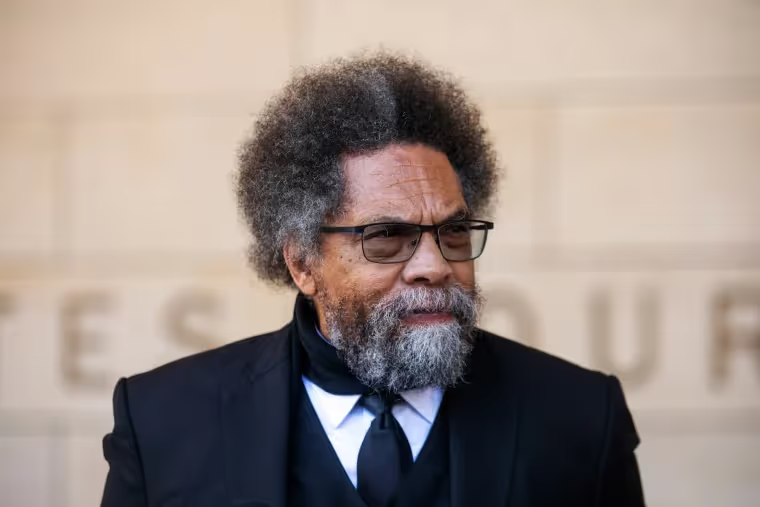
Dr. Cornel West is a renowned philosopher, political activist, and public intellectual known for his powerful critiques of race, class, and justice in American society. Born on June 2, 1953, in Tulsa, Oklahoma, and raised in Sacramento, California, West's intellectual journey began early, as he was heavily influenced by the works of Dr. Martin Luther King Jr. and the civil rights movement. He earned his undergraduate degree from Harvard University and later a Ph.D. in Philosophy from Princeton University, becoming a leading scholar in the fields of African American studies and religion. Dr. West has written numerous influential books, including Race Matters and Democracy Matters, both of which examine the intersections of race, politics, and ethics in America. He has taught at prestigious institutions such as Harvard, Princeton, and Yale and is known for his passionate advocacy for social justice, human rights, and the empowerment of marginalized communities. His membership in Alpha Phi Alpha reflects his dedication to the fraternity's core values of leadership, service, and academic excellence. Throughout his career, Dr. West has embodied these principles, using his platform to challenge systems of oppression and to advocate for a more just and equitable society. Beyond his academic achievements, West is a vocal advocate for political and social change, often engaging in public discourse on issues like poverty, racism, and the moral crises facing the United States. His work continues to inspire generations of scholars, activists, and leaders, making him one of the most respected voices in contemporary intellectual and social thought.

Robert F. Smith is an American billionaire, philanthropist, and the founder of Vista Equity Partners, a leading private equity firm. He became widely known for his philanthropic efforts, including paying off the student loan debt of Morehouse College's 2019 graduating class. Smith joined Alpha Phi Alpha Fraternity, Inc., the first intercollegiate Greek-letter fraternity established for African American men, while attending Cornell University. The fraternity is known for its commitment to leadership, community service, and empowerment. Smith's affiliation with Alpha Phi Alpha reflects his dedication to fostering opportunities for African Americans, both in education and business.
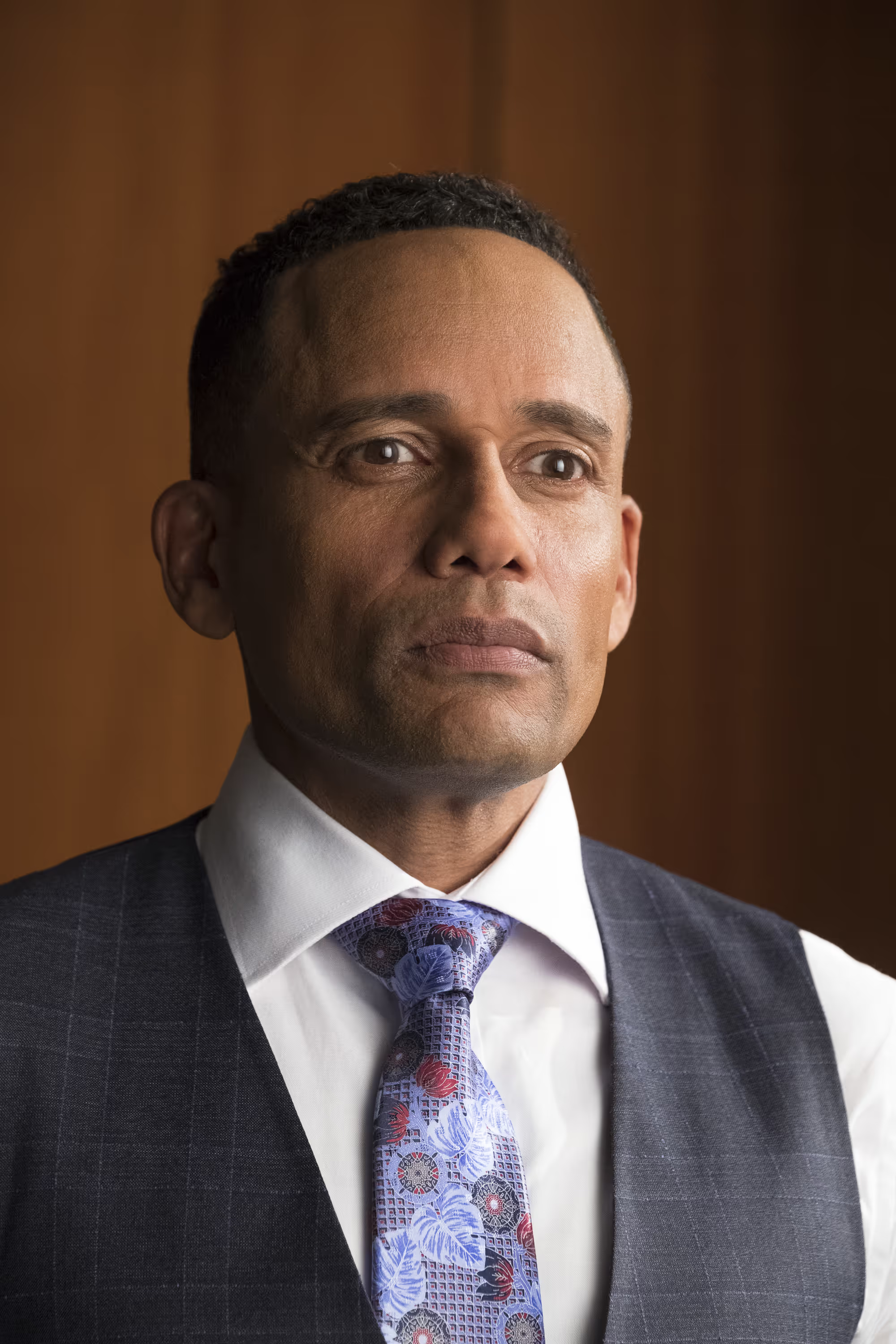
Hill Harper is an accomplished actor, author, and activist known for his roles in television dramas like CSI: NY, The Good Doctor, and Homeland. Born on May 17, 1966, in Iowa City, Iowa, Harper has a strong academic background, having earned degrees from Brown University and Harvard Law School. While at Harvard, he befriended future President Barack Obama, and the two maintained a close relationship. Despite his law degree, Harper followed his passion for acting, gaining critical acclaim for his performances in both television and film. Beyond acting, Harper has made a name for himself as an author, writing several best-selling books focused on empowerment, such as Letters to a Young Brother and The Wealth Cure, offering guidance on personal development and financial health, particularly aimed at uplifting young African Americans. His membership in Alpha Phi Alpha aligns with the fraternity’s mission of promoting leadership, academic excellence, and service. Harper exemplifies these values through his philanthropy and community involvement. He is the founder of the Manifest Your Destiny Foundation, a nonprofit organization dedicated to empowering underserved youth through mentorship, education, and resources. In addition to his activism, Harper has been a vocal advocate for cancer awareness, having successfully battled thyroid cancer himself. His multifaceted career and commitment to social causes make him a powerful example of how one can use their platform to inspire and enact positive change.
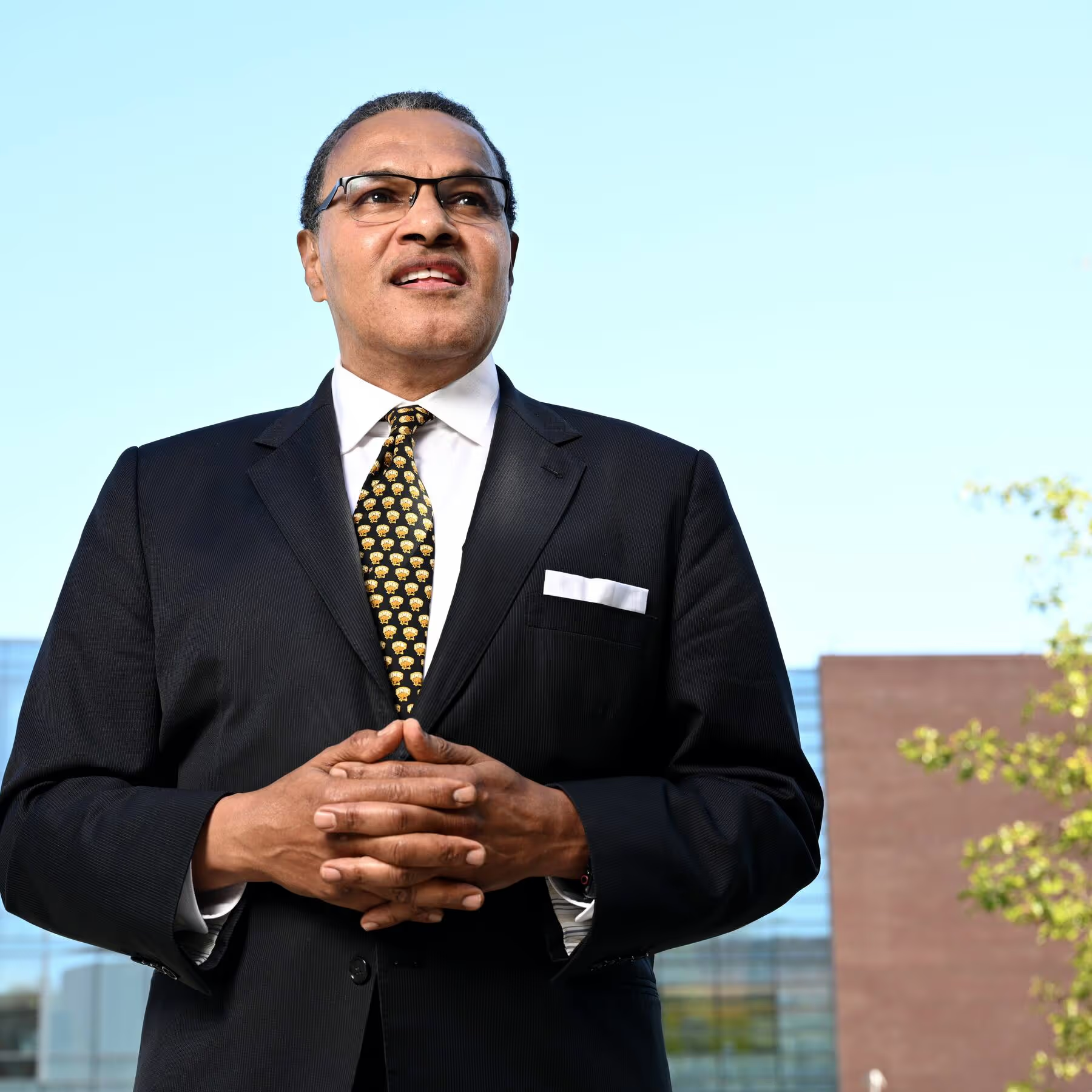
Dr. Freeman A. Hrabowski III is a distinguished educator and advocate for minority students in higher education, best known for his role as the President of the University of Maryland, Baltimore County (UMBC). Born on August 13, 1950, in Birmingham, Alabama, Hrabowski grew up during the Civil Rights Movement and was inspired to pursue education as a means to promote social change. He attended the University of Maryland, where he earned a bachelor's degree in mathematics, followed by a master's and a doctorate in higher education administration. Under his leadership since 1992, UMBC has become a national model for promoting diversity and academic excellence, particularly in STEM fields. Hrabowski's innovative programs have significantly increased the number of minority students pursuing degrees in science and engineering, making UMBC one of the top producers of African American graduates in those disciplines. His membership reflects his commitment to leadership, service, and community empowerment, values that he has embodied throughout his career. Hrabowski has received numerous accolades for his work, including being named one of the “100 Most Influential People in the World” by TIME magazine in 2012. He has also served on various national boards, including the National Academy of Sciences and the Board of the Carnegie Foundation for the Advancement of Teaching. Through his tireless efforts in education and advocacy, Dr. Hrabowski continues to inspire countless students and educators, promoting a vision of inclusivity and excellence in higher education.
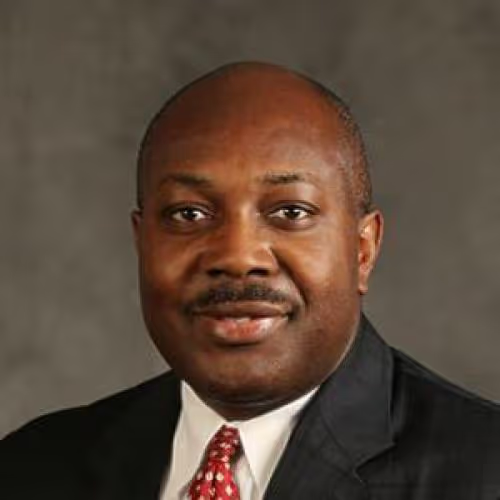
Dr. Anthony Wutoh is a respected academic leader and educator known for his contributions to the field of pharmacy and higher education. Born and raised in Washington, D.C., Dr. Wutoh pursued his education at Howard University, where he earned his Bachelor of Science in Pharmacy. He later obtained a Doctor of Pharmacy degree and a Ph.D. in Educational Leadership and Policy Studies. Dr. Wutoh has held various leadership positions throughout his career, including serving as the Dean of the College of Pharmacy at Howard University. Under his leadership, the college has focused on improving educational outcomes and increasing diversity within the pharmacy profession. He has published numerous articles and research studies, contributing significantly to the body of knowledge in pharmacy education. His involvement in the fraternity reflects his commitment to leadership, community service, and academic excellence. Dr. Wutoh has been actively engaged in initiatives aimed at mentoring young scholars and promoting access to education for underrepresented communities. He has received multiple awards for his dedication to education and his efforts to advance the pharmacy profession. Through his work, Dr. Anthony Wutoh continues to make a lasting impact, inspiring future generations of pharmacists and leaders in the community.
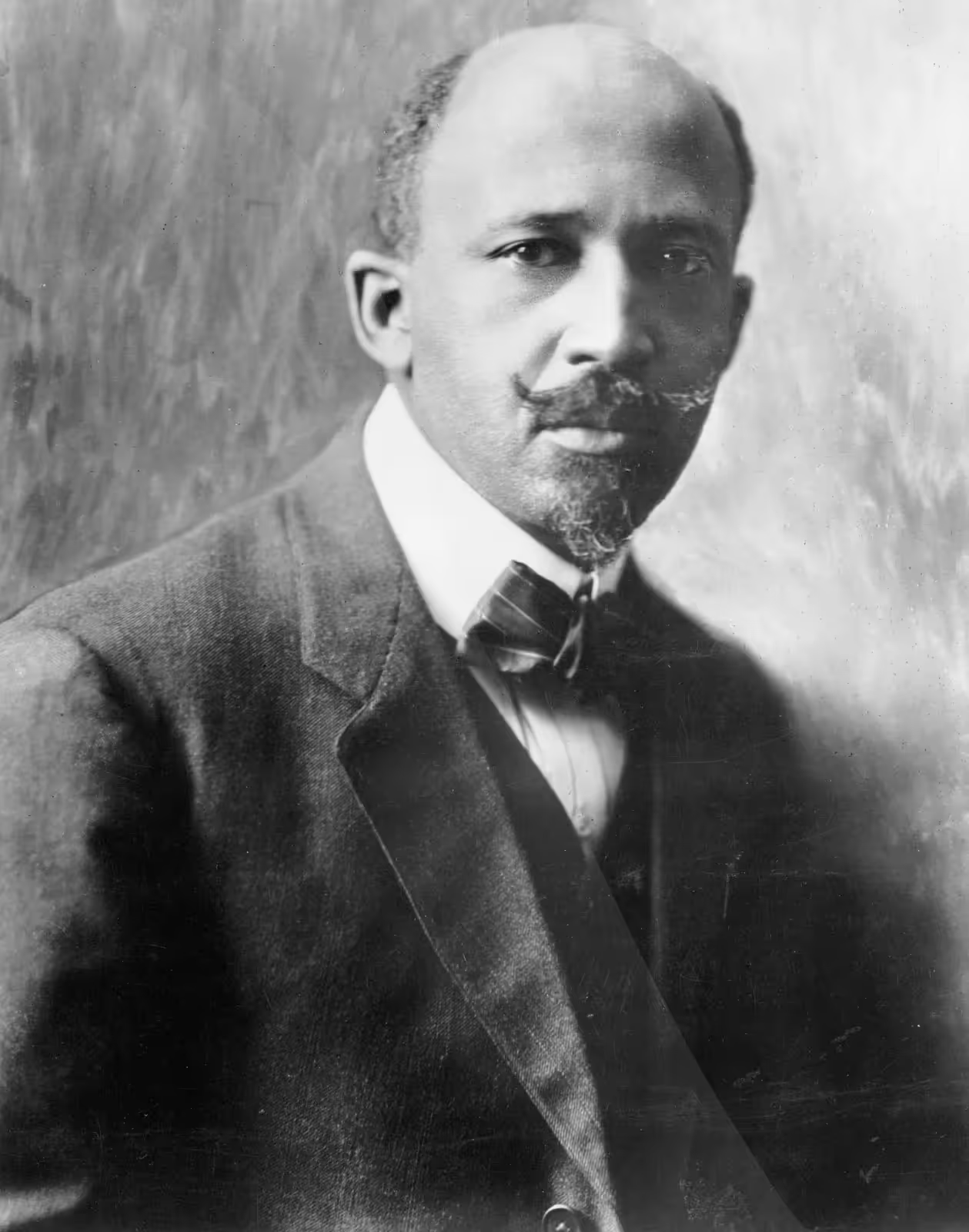
W.E.B. Du Bois was a pioneering sociologist, historian, and civil rights activist, renowned for his profound impact on the African American intellectual tradition and the fight for racial equality. Born on February 23, 1868, in Great Barrington, Massachusetts, Du Bois grew up in a relatively tolerant community, yet he was acutely aware of the systemic racism in the United States. He became the first African American to earn a Ph.D. from Harvard University in 1895. Du Bois co-founded the National Association for the Advancement of Colored People (NAACP) in 1909, where he served as editor of its publication The Crisis, using it to advocate for civil rights and promote African American culture and history. He was a vocal advocate for political action and higher education for African Americans, famously opposing the more conciliatory views of Booker T. Washington. His groundbreaking book, The Souls of Black Folk (1903), continues to influence discussions on race and equality in the U.S. and worldwide. In addition to his monumental intellectual contributions, W.E.B. Du Bois was a member of Alpha Phi Alpha Fraternity, Inc., the first intercollegiate Greek-letter fraternity for African American men. His membership in Alpha Phi Alpha aligns with the fraternity’s emphasis on scholarship, service, and leadership in the African American community. Throughout his life, Du Bois remained dedicated to promoting civil rights and Pan-Africanism, advocating for unity among African nations and people of African descent. In his later years, Du Bois moved to Ghana, where he continued his work on Pan-Africanism until his death in 1963. His legacy as a scholar, activist, and visionary continues to shape the fight for racial justice and social equality across the United States and the world.
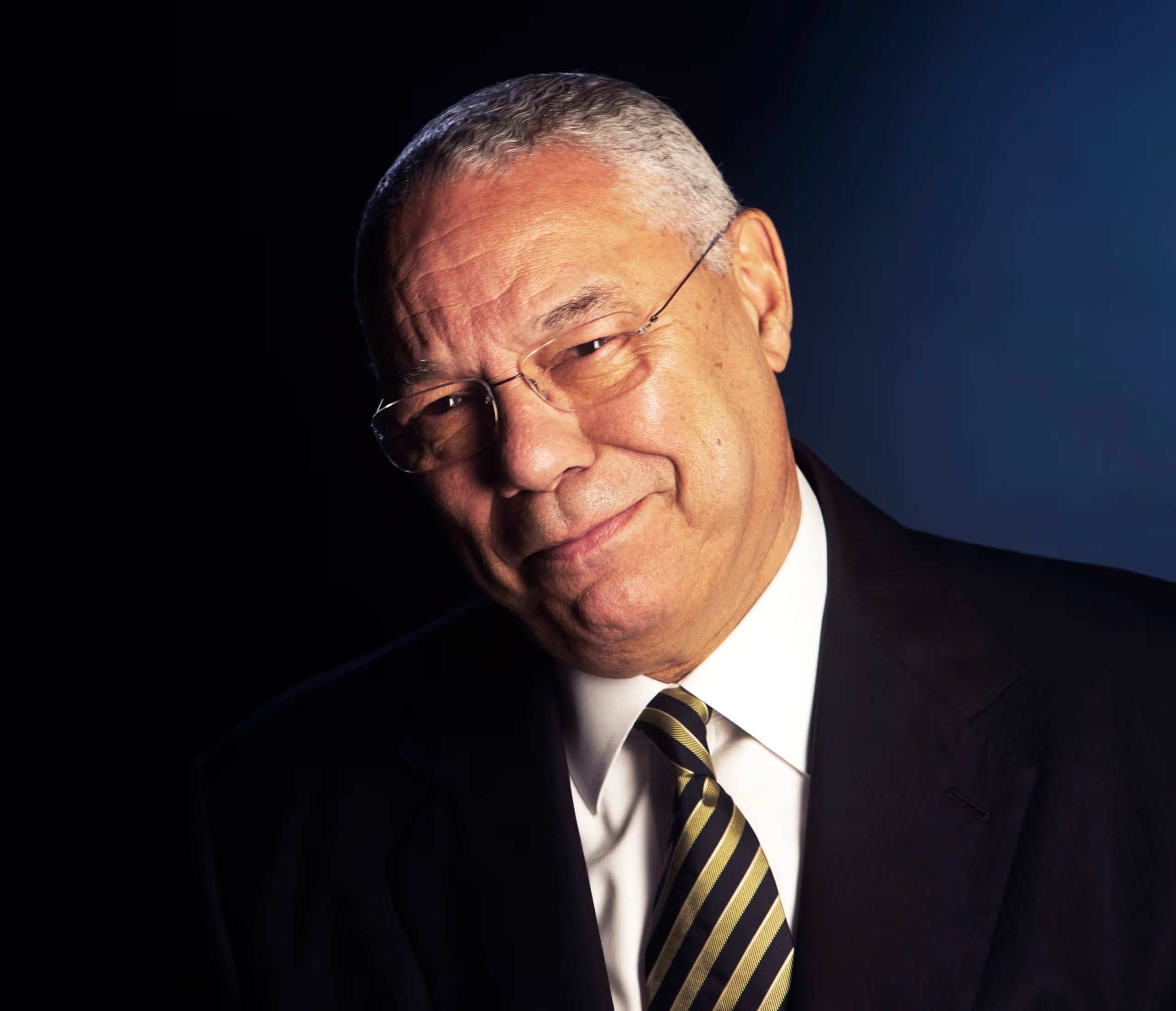
Colin Powell was a distinguished military leader and statesman who served as the 65th U.S. Secretary of State from 2001 to 2005. Born on April 5, 1937, in Harlem, New York, to Jamaican immigrant parents, Powell grew up in a working-class neighborhood and attended City College of New York, where he earned a degree in Geology. After graduating, he joined the U.S. Army and quickly rose through the ranks, serving in various leadership roles during his 35-year military career, including as a four-star general. Powell played a pivotal role in several key military operations, notably during the Gulf War in 1991, where he was instrumental in the planning and execution of Operation Desert Storm. His leadership and strategic acumen earned him widespread respect and recognition, making him a prominent figure in American military history. His membership in the fraternity underscored his commitment to community service, leadership, and the advancement of African Americans. Throughout his life, Powell advocated for diversity and inclusion in the military and beyond, serving as a role model for aspiring leaders from all backgrounds. He was also known for his dedication to education and youth mentorship, founding the Colin Powell Center for Leadership and Service at City College, which aims to develop the next generation of leaders. Powell's legacy as a trailblazer in both the military and public service continues to inspire many, reflecting his profound impact on American society and global diplomacy.
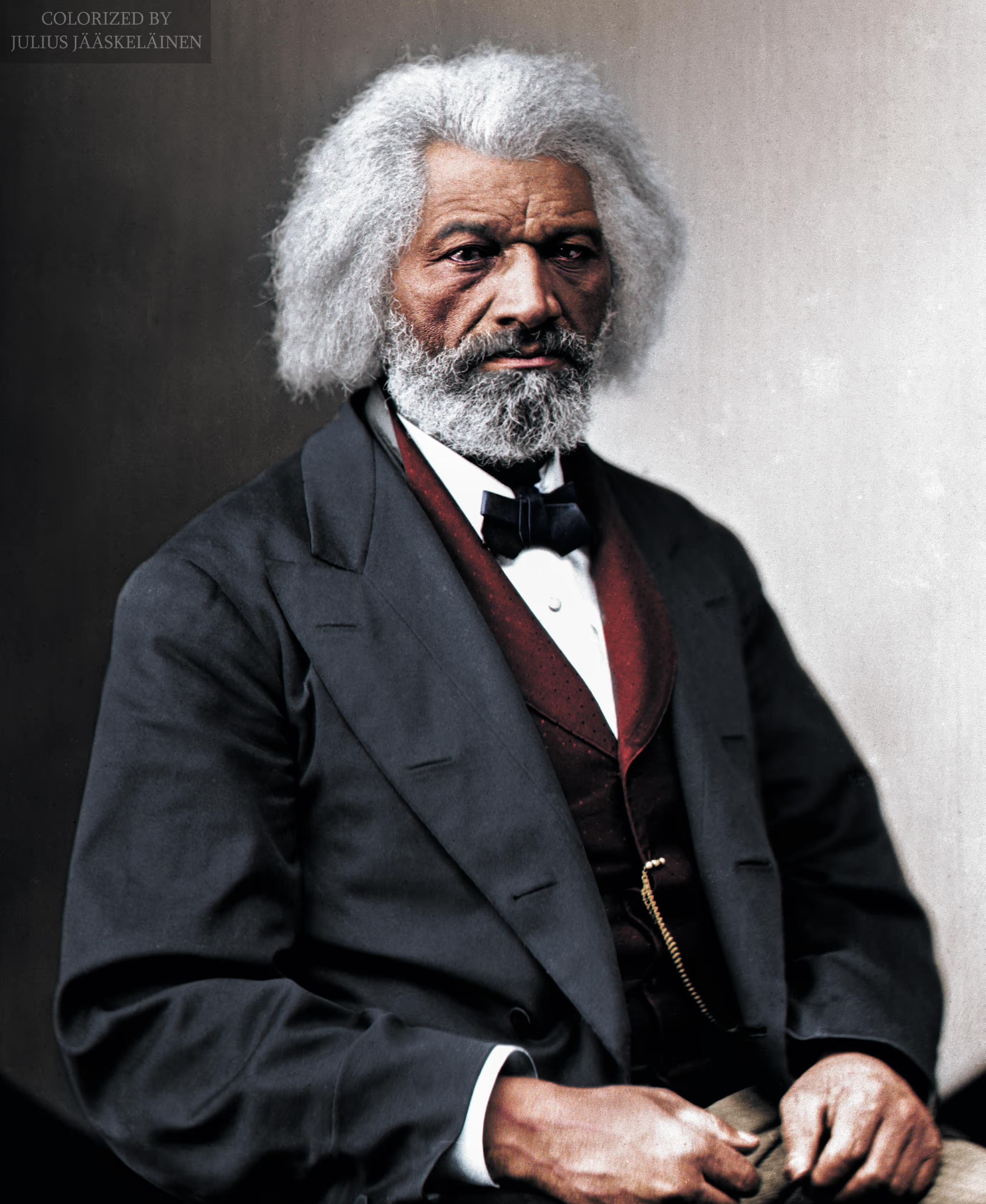
Frederick Douglass was a prominent abolitionist, social reformer, and influential writer known for his powerful advocacy for the rights of African Americans and women. Born into slavery in February 1818 in Talbot County, Maryland, Douglass escaped to freedom in 1838, adopting a new identity and dedicating his life to the fight against slavery and racial injustice. He became a skilled orator and writer, publishing several autobiographies, including his most famous work, Narrative of the Life of Frederick Douglass, an American Slave, which detailed his experiences and highlighted the brutal realities of slavery. Douglass’s eloquence and commitment to human rights made him a leading figure in the abolitionist movement, and he played a crucial role in advocating for the 13th, 14th, and 15th Amendments, which aimed to secure freedom and equal rights for formerly enslaved individuals. Though Frederick Douglass lived before the founding of Alpha Phi Alpha Fraternity, Inc. in 1906, he inspired generations of African American leaders and activists, including those within the fraternity. His legacy of leadership, education, and social justice continues to resonate with members of Alpha Phi Alpha, who uphold the values of scholarship and service that Douglass exemplified. Douglass was a strong advocate for education, believing it was essential for personal and communal empowerment. He founded several schools and participated in the establishment of institutions that promoted African American education and equality. His tireless work as a lecturer, writer, and reformer left an indelible mark on American society, making him a symbol of resilience and the ongoing struggle for civil rights. Douglass's contributions laid the groundwork for future movements advocating for justice and equality, influencing countless individuals and organizations dedicated to these causes.

Chico Bean, born on February 20, 1987, in Washington, D.C., is a talented comedian, actor, and writer known for his engaging style and humor. He gained widespread recognition as a member of the comedy collective Wild 'N Out, where his sharp wit and entertaining performances resonated with audiences. Chico, whose real name is Richardo A. Montez, has built a successful career in comedy, utilizing his platform to tackle issues of race, identity, and social justice with humor and authenticity. Beyond Wild 'N Out, he has made appearances on various television shows and podcasts, showcasing his versatility as a performer and his ability to connect with diverse audiences. Chico Bean became a brother of Alpha in the spring of 2007 at UNC Greensboro. Through his involvement in the fraternity, Chico promotes mentorship and empowerment, particularly among young Black men. In addition to his comedic career, he engages in philanthropic efforts, supporting initiatives that benefit underprivileged communities and advocating for mental health awareness. Chico Bean’s achievements in entertainment, combined with his dedication to uplifting others, make him a prominent figure in both comedy and community service, inspiring many with his journey and message.
So how does one join?!
The easiest way to inquire about Alpha is to get to know the current brothers and support/participate in events on campus.
Key Statistics: Membership, Community Service, and Academic Achievements
The Nu Kappa chapter of Alpha Phi Alpha Fraternity Inc., also known as the Hilltop Alphas, is proud to share some key statistics about our chapter. We have a strong membership base, actively engage in community service, and have achieved notable academic success.


Myles Ellis
Brown University PhD
.webp)